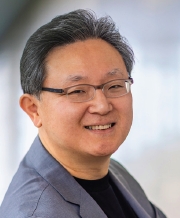IGEE Proceedings’ Commitment to Sustainable Development
Article information

It is with profound enthusiasm and a deep sense of responsibility that I welcome you to the inaugural issue of IGEE Proceedings. As the Editor-in-Chief, I am honored to lead this pioneering effort, which represents a significant milestone in our dedication to advancing multidisciplinary research in support of the United Nations Sustainable Development Goals (SDGs).
IGEE Proceedings is more than a traditional academic journal; it is a dynamic platform designed to integrate diverse perspectives and disciplines to tackle the multifaceted challenges of sustainable development. Our mission is to provide a comprehensive, open-access, and peer-reviewed forum for research, reviews, and perspectives that foster a deep understanding of sustainability and climate action.
Reflecting on the urgent state of our world, UN Secretary-General António Guterres's stark warning that "the era of global warming is over; the era of global boiling has arrived" encapsulates the critical moment we face. The climate crisis is no longer a distant threat but a present reality demanding immediate and decisive action. This era of "global boiling" signifies the extreme and accelerating impacts of climate change, including record temperatures, devastating natural disasters, and unprecedented disruptions to ecosystems and human livelihoods. Our response must be urgent, comprehensive, and rooted in empathy and responsibility towards all life on Earth.
In 2015, 193 countries embarked on a 15-year journey with the 2030 Agenda for Sustainable Development, aiming to eradicate extreme poverty and extend basic services to developing countries. However, progress has been slow. By 2019, the Decade of Action was declared to accelerate efforts. The COVID-19 pandemic significantly hindered progress, and global extreme poverty rates are now projected to reach up to 7%, instead of the 3% target, by 2030 (World Bank, 2022). The pandemic also exposed deep-seated inequalities, as black workers in the US faced mortality rates five times higher than their white peers. This difference highlights the convergent effect of preexisting socioeconomic disparities and systematic racism, which is called a "syndemic." Additionally, political polarization and crises such as the Ukraine-Russia conflict have caused severe economic, humanitarian, and environmental disruptions, including inflation, energy crises, and reductions in Official Development Assistance (ODA).
To effectively confront these challenges, it is essential to connect our academic resources and create social value. Researchers from multiple disciplines must collaborate and commit to the SDGs, embracing a spirit of coexistence. Higher education institutions can serve as convening agents, bringing together diverse expertise to develop comprehensive solutions to global challenges.
In this inaugural issue, you will find a collection of papers that reflect our dedication to addressing global challenges with a holistic approach. We cover critical issues such as food upcycling, career education, sustainable feminine hygiene, local extinction, and coral restoration, acknowledging that these challenges require a unified, strategic response.
Echoing the profound insight of Paul Farmer, who said, "The idea that some lives matter less is the root of all that is wrong with the world," IGEE Proceedings is committed to addressing the deep-seated inequalities that hinder sustainable development. This quote underscores the core issue of inequality that underpins many of the SDGs, including poverty reduction, health equity, and education. Our journal upholds the values of respect, empathy, and global citizenship, recognizing that true progress can only be achieved when we confront and rectify these fundamental injustices. By focusing on equitable solutions and fostering a comprehensive understanding of global challenges, we aim to bridge the gap between academic research and actionable strategies, ensuring our efforts contribute to a more just and sustainable world for all.
As we face the climate crisis and other global challenges, it is essential that we adopt a forward-thinking mindset. Our research must prioritize sustainable solutions that enhance living conditions worldwide. A rigorous scientific approach is vital to addressing these complex issues effectively. By fostering a culture of collaboration, empathy, and innovation, we aim to contribute to a more equitable and sustainable future.
We warmly invite scholars and researchers from across the globe to contribute to IGEE Proceedings. We seek innovative research that explores new approaches and practical solutions with real-world impact. Your contributions will help bridge the gap between academic insights and actionable strategies, fostering dialogue that inspires evidence-based practices and drives meaningful change. As we launch this inaugural issue, I encourage you to engage deeply with the content, share your research, and join us in this collective effort. Your participation is crucial to the success of IGEE Proceedings, and together, we can build a vibrant community dedicated to advancing sustainable development and addressing the climate crisis.
Thank you for your support and involvement. Should you have any questions or wish to learn more about contributing to our journal, please visit our website at https://e-igee.org/ or contact us at igeeresearch@yonsei.ac.kr. I look forward to a meaningful journey ahead and to collaborating with you to make the world a better place.
Shinki An, MD, PhD, Mdiv.
Editor-in-Chief, IGEE Proceedings
Chair, Institute for Global Engagement and Empowerment at Yonsei University
Chair Professor, Dept. of Medical Education, Yonsei University College of Medicine
Shinki An is the current Editor-in-Chief of IGEE Proceedings. He is also the Chairman of Yonsei University’s Institute for Global Engagement and Empowerment, Director of the Global Medical Education Working Group, and Professor of Medical Education at Yonsei University’s College of Medicine. As a cardiologist and proponent of the medical humanities, An advocates for the development of educational platforms that extend beyond mere physical spaces, and leverages collective social resources to provide funding, tools, and support for underserved communities globally.